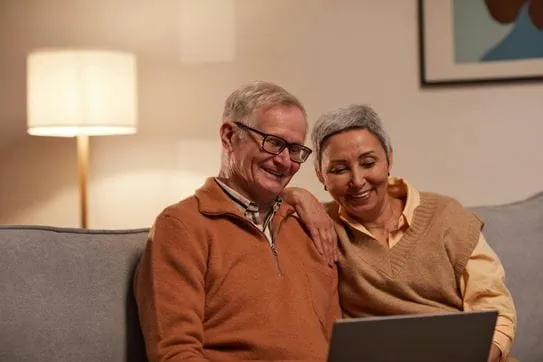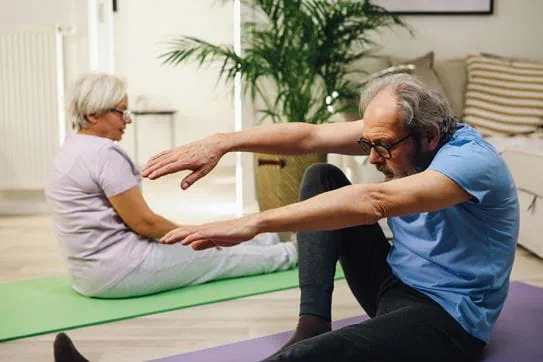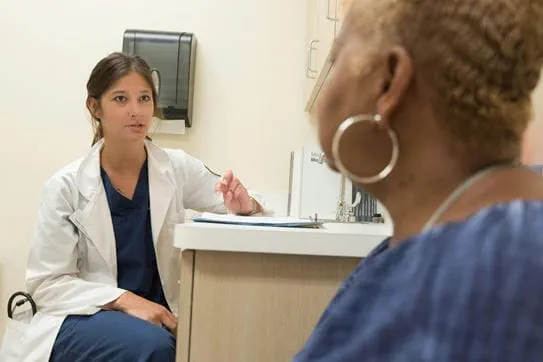Cancer can be a complex disease and trying to find the information you need to stay informed about screenings, treatments and support is stressful. But it’s important to remember you do not have to face these new challenges on your own. Our Cancer Information Helpline serves people across Canada. And they are ready to provide answers about prevention, diagnoses, and end-of-life care in over 200 languages.
Below are the answers to 6 of the most commonly asked questions at the Cancer Information Helpline, for anyone in need of additional information and support.

1. How does tobacco use increase my risk of developing cancer? I’ve been a smoker for 20 years. Everyone around me smokes, but I know it’s time to quit. This is really hard for me to do, but I really want to understand the benefits of quitting.
When you decide to quit smoking, you’re taking a very important step for your health that is truly admirable.
Tobacco use is the number 1 risk factor for preventable disease and death in Canada. The harmful chemicals in tobacco smoke cause direct damage to your cells, leading to cancer. As a result, smokers have a higher risk of developing at least 16 different types of cancer.
Most smokers die about 10 years earlier than someone who has never smoked. Understanding some of the benefits of quitting can help you in your decision making:
- Your life will be easier. Not being able to have a cigarette when you want one can make you grumpy. And once you have quit, you won’t have to sneak away to have a cigarette when you’re at an event with family or friends.
- You’ll save money and will be able to put more money towards something that really makes you happy, other than cigarettes.
- It will be easier to exercise. A smoker’s heart has a harder time keeping up with the demands of exercise. Smoking also affects your lung capacity, your ability to gain and maintain muscle and your overall energy.
- You’ll be a better role model for the young people in your life. Most kids today are learning about the risks of smoking at a young age. The last thing smokers want is to influence a young person to start smoking. Seeing a loved one light up for the first time can be very confusing and upsetting. Going smoke-free will show the young people in your life how strong you are to have beat an addiction.
- Your body, hair, clothes, home and car will smell better. Most smokers learn to live with the unpleasant odour of cigarette smoke. But second-hand smoke also travels through the air. Smoke lands on carpet, furniture, hair and clothing -becoming third-hand smoke. When you quit smoking, you can enjoy the fresh scent of regular life. And your home will be safer for family, friends and pets.
- Your family and friends will also benefit. If your loved ones worry about your health because you smoke, they’ll be happy when you quit. You’ll be helping them be healthier too by not exposing them to second-hand smoke.
If you need more help to quit smoking, contact the Smokers’ Helpline.

2. My sister is currently going through chemotherapy. She mentioned seeing clumps of hair falling out and will be shaving her head soon. I heard you have a wig program. Can you tell me a little bit about it?
Chemotherapy can be such a hard experience, not just physically but emotionally as well. Hair loss is a side effect of chemotherapy that can feel especially challenging.
Our wig and breast prosthesis program has wigs designed for women. When your family member fills out the online application form, they will be able to apply for a wig. Our wigs are free of charge for anyone going through cancer treatment. They are also available in a variety of styles and colours to match personal preferences and needs.
Once the wig application form is submitted by your family member, our wig hub will be in touch with them. They will help find the best match and deliver it to their home address.
If you need help completing the application form, please don’t hesitate to contact us. You will connect with someone who will be happy to help complete the form for you or your family.
3. The doctor says my mother has advanced cancer and that the cancer cannot be cured. They talked about her receiving treatment. Can you help me understand this?
We are always sorry to hear about someone’s advanced cancer diagnosis and can’t imagine how difficult this must be for them or for their family.
With an advanced cancer diagnosis, the focus of care shifts from cure to providing physical, emotional and practical support. Your mother’s healthcare team will work with her to ensure she is receiving support that will help improve her quality of life. Your family and your mother will need to think about what future care she would like. These decisions are never easy. It can be confusing when trying to make the best decision about your family member’s care.
It would be best for you to talk with your mother’s healthcare team about her treatment options and how you can work with them.
.jpg?h=362&iar=0&mw=543&w=543&rev=f97b86ca608e472ebbc1791ef99437a3&hash=DE38D5AE9CBC85841F3C7A8F57FCCABC)
4. It’s been two months since I’ve completed cancer treatments. I don’t know how often I should get checked to make sure the cancer doesn’t come back. I don’t know when my next appointment is.
It’s completely normal to feel uncertain about next steps. Follow-up after treatment can vary depending on several different factors. These can include the type of cancer you had, treatment you received and your overall health.
Typically, your healthcare team will develop a personalized follow-up plan to keep track of any signs that the cancer is coming back. It would be best to connect with them to understand what they have planned for your follow-up care.
Learn more about adjusting to life after treatment and connect with people with similar experiences on CancerConnection.ca.
5. What testing can be used to diagnose if I have melanoma? I have a mole which appears to be asymmetrical, discoloured and it keeps changing.
Finding a new mole can be very concerning. Moles can be both cancerous (melanoma) or non-cancerous. It’s important to know your body and discuss any changes with your doctor. We have information about how to recognize the signs and symptoms of melanoma. We recommend you book an appointment with your family doctor to follow up. You can use these questions to ask about a diagnosis to help you prepare for your next appointment.

6. I live in Prince George BC and I'm going to have to travel for my treatment. I need somewhere to stay during my chemotherapy appointments. Is this something you can help with?
Having to worry about finding accommodation and transportation adds stress to a cancer diagnosis. We have three supports that may help with your travel needs.
-
Transportation: our driving program connects people who need transportation to cancer treatments with volunteer drivers. Our drivers are trained to provide safe and reliable rides to approved cancer treatment facilities. Please contact 1-888-939-3333 to register for the driving program.
-
Accommodation: The Kordyban Lodge is located next to the BC Cancer Centre for the North and University Hospital of Northern BC. The lodge operates 24 hours a day, 7 days a week. Please contact them directly to book your stay.
-
Financial: Our Travel Treatment Fund provides funding to help with your travel expenses. Even if you’re travelling a short distance, financial support may still be available to help ease your travel expenses.
Visit our accommodation page to learn more about our other lodge locations.
